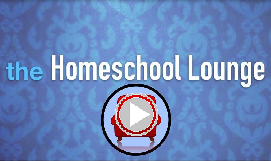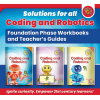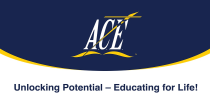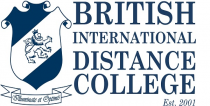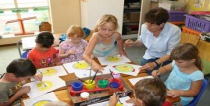Legal Status

Home schooling was recognized in 1996 in the SA Schools Act.
The information provided by the media and government officials on the legal status of homeschooling in South Africa is often confusing to parents. This article explains the law concerning homeschooling in South Africa, with references to reliable sources so that you can verify the facts for yourself.
Homeschooling and the law
The supreme law in South Africa is the Constitution. The cornerstone of the Constitution is the Bill of Rights, which is described in chapter 2 of the Constitution. According to article 29(1) of the Constitution, everybody in South Africa has the right to basic education, including children. Everybody also has the right to decide where they want to receive this education and what the content of this education should be.
However, children are not capable of making these decisions for themselves. That is why article 28(1)(b) of the Constitution states that children have the right to family or parental care or appropriate alternative care. This means that parents and guardians must make decisions on behalf of the children in their care about what is in their best interests. This includes decisions on education and means that parents and guardians must decide what type of education a child should receive, be it school education or home education.
When interpreting the Bill of Rights, the Constitution also requires, in article 39(1)(b), that courts must consider international law. One piece of international law that is applicable is article 26(3) of the United Nations’ Universal Declaration of Human Rights, which states that “Parents have a prior right to choose the kind of education that shall be given to their children”.
This means that only parents and legal guardians have the authority to decide whether children in their care should be educated at home or at a formal school. The Constitution does not state that government officials have the authority to make that decision and as such you do not need to ask for permission to educate your children at home. If you have to ask for permission, it is not a right, but a privilege.
The media sometimes mentions that parents and guardians must submit their highest qualification when registering their children for homeschooling. Neither the Constitution nor the South African Schools Act states that the right to choose home education is only relevant to parents with certain levels of education. There is therefore no legal basis for requiring parents to submit their qualifications. Research has also repeatedly shown that the parents’ qualifications have no influence on the success of home education. There is therefore also no educational reason to ask parents to submit their qualifications.
The media also sometimes mentions that parents must submit the curriculum that they plan to follow. This implies that department of education should approve the curriculum. This requirement is not present in the Constitution nor the Schools Act and furthermore, a recent judgement in the Pretoria High Court also confirmed this. On 25 March 2012, Judge Cynthia Pretorius ruled that the state curriculum is not binding on independent schools and parents who educate their children at home.
The situation in practise
The South African Schools Act requires parents to register their children for education at home. This registration must be done at the provincial department of education. In practice however, some provincial departments do not the administrative capability to register children for home education.
Some of the larger provincial departments have limited administrative capabilities to register children for home education. However, the officials in those departments have a very limited understanding of home education. Parents who homeschool are intimately involved with their children and know exactly what their children can or cannot do. However, officials often require them to keep a record of attendance, records of progression as well as records of assessment. What value do cabinets full of records add to education? To ensure that mom will remember that her children were at home on 25 April 2011 in three years’ time? Because of this, more than 95% parents do not register their children for home education.
Officials also do not understand the law that they are supposed to apply. Although the South African Constitution, international law and court judgements all confirm that only parents have the authority to decide what type of education their children will get and what the content will be, provincial officials still ask parents to submit the curriculum they plan to follow for approval. Officials act as if home education is a privilege and not a right.
At public meetings officials often talk about “our” children, as if the children belong to them and as if they have the authority to make decisions on behalf of these children. The statement is often made that it takes a village to raise a child, and the department of education is regarded as an important part of this village. History and research has however shown that it does not take a village to raise a child, but committed parents.
Home education internationally and Africa
Home education is also legal in many countries internationally. Click here for a list providing the legal status of home education in various countries.
Families that want to move to other African countries can click here for more information on the legal status of home education and contact details in those African countries.
Events
Legal & Research
Centres
Homeschool ABC
Support
Curriculums
Cambridge & International ...
As of 1 January 2025, Macmillan Education is the sole agent ...
Ginini Training Institute
Ginini Academy is an EdTech home education content provider ...
GED through Learnalot - Grade 12 ...
Why enrol with Learnalot? With Learnalot, you have the flexibility ...
Has no content to show!



